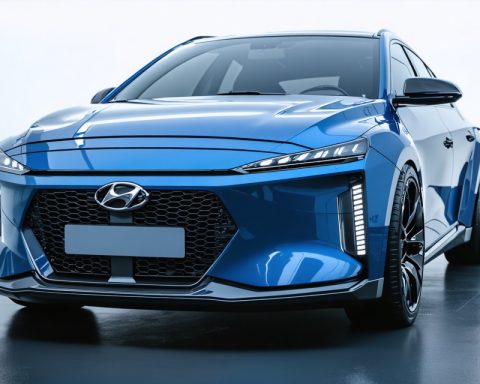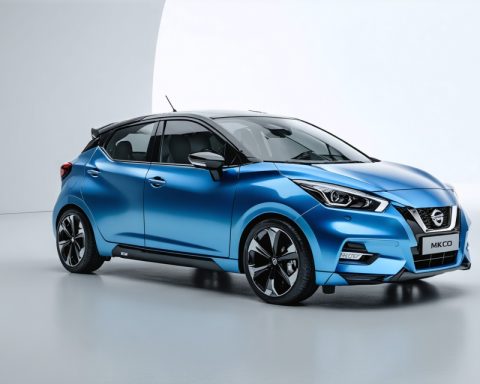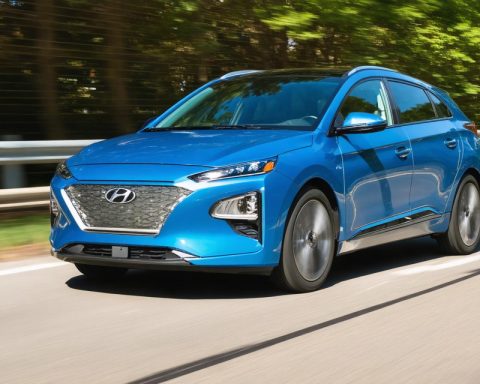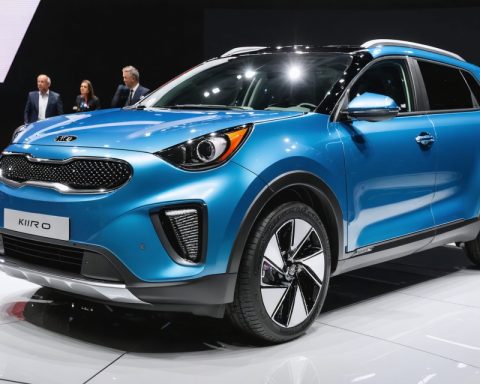- The UK government is changing tax policies, affecting the affordability of electric vehicles (EVs), which were previously seen as cost-effective and environmentally friendly options.
- EV drivers historically save nearly £1,200 annually, primarily due to lower electricity costs and minimal maintenance; however, new vehicle excise duty (VED) regulations will impact these savings.
- Starting Tuesday, EVs will face a minimum annual VED of £195, with an extra £425 yearly for five years on models over £40,000.
- The government aims to encourage EV adoption while ensuring fiscal stability, but increased costs may deter consumers at a critical market juncture.
- Critics argue these tax changes could hinder the shift from petrol to electric, complicating efforts towards a sustainable future.
- As consultation on the zero-emission vehicle (ZEV) mandate concludes, evolving policies are essential to support broader EV accessibility.
As the age of electrification revs into high gear, a sudden jolt from the UK government threatens to stall the momentum. With the flick of a legislative switch, the landscape for electric vehicle (EV) ownership has shifted, leaving industry watchers and consumers alike questioning the road ahead.
Electric vehicles, once celebrated as the poster child of green technology, are now bearing the brunt of new fiscal policies that may douse the initial spark of affordability. Recent research by the Energy and Climate Intelligence Unit (ECIU) shines a light on the dust kicked up by these new tax rules, uncovering the stark reality behind the marketing allure of sustainable driving.
Electrifying Savings Dimmed
Historically, the journey towards owning an EV promised not just an environmental conscience but also appealing annual savings. On average, EV drivers have enjoyed almost £1,200 in savings each year compared to their petrol counterparts. These savings emerge primarily from the lower costs of electricity versus petrol and diminished maintenance requirements due to fewer mechanical components. Yet, looming changes could darken this optimistic picture.
With the Treasury poised to scrap EVs’ exemption from vehicle excise duty (VED)—long a selling point for electric enthusiasts—drivers will face new financial burdens. Starting Tuesday, EVs will no longer enjoy a free ride, forced to pay at least £195 annually from their second year. The stakes increase further for luxury models, valued over £40,000, imposing an additional £425 every year for five years.
A Double-Edged Sword
Ironically, while fees for traditional petrol guzzlers are also set to increase, ostensibly to encourage EV adoption, the new taxes on electric models threaten to muddle consumer confidence at a pivotal moment for the market. The government’s zero-emission vehicle (ZEV) mandate, while successful in spurring competition and lowering initial EV prices, stands on a precarious foundation if trust in long-term savings wavers. Advocates fear that such policies may inadvertently trap families in the outdated embrace of petrol vehicles—where they continue to endure higher lifetime costs.
Ginny Buckley, a prominent voice in the EV community, argues that these tax changes unfairly target a new generation of car owners. Vehicles like the Kia e-Niro and Volkswagen ID.3, which were never designed to be luxury models, are now caught in the crossfire of fiscal policy aimed at the high end of the market. For many families, these added costs could deter the leap from gas to electric, thwarting a collective stride towards a cleaner future.
Navigating the Road Ahead
The government’s stance seeks a delicate balance: fostering EV adoption while maintaining fiscal stability. By freezing first-year VED rates for EVs, authorities aim to mollify skeptical consumers. Yet, this gesture may not be enough to counter the burgeoning anxiety that taints the otherwise accelerating progress of the EV era.
As the consultation period on the ZEV mandate draws to a close, the collective hope is that policies will evolve to favor a broader, more inclusive entry into the electric world. The essence of this debate encapsulates a larger narrative of climate responsibility clashing with economic realities—a tension that will define the next leg of our journey toward sustainable driving.
The ultimate take-home message is clear: While the path to widespread EV usage remains fraught with challenges, the stakes have never been higher for navigating it with foresight, ensuring that the promise of electrification does not flicker and fade under the weight of well-intentioned, yet potentially misguided, policies.
Are New Tax Rules Stalling the Electric Vehicle Revolution?
Exploring the Impact of New Tax Policies on Electric Vehicles in the UK
The rapid pace of electrification has met an unexpected hurdle: new fiscal policies introduced by the UK government. While electric vehicles (EVs) were once celebrated for their environmental benefits and cost savings, recent legislative changes threaten to shift the financial landscape for current and potential EV owners. Here’s a deeper dive into the evolving situation, including actionable insights and future predictions.
Current State of Electric Vehicle Market in the UK
Electric vehicles have long been marketed as a sustainable and cost-effective alternative to petrol vehicles. According to the Energy and Climate Intelligence Unit (ECIU), EV drivers historically saved around £1,200 each year compared to petrol vehicle owners, thanks to cheaper electricity costs and lower maintenance requirements due to fewer moving parts. However, with the UK Treasury’s decision to revoke the exemption of EVs from the vehicle excise duty (VED), this landscape is changing significantly.
Clarifying the Impact of VED Changes on EV Affordability
Starting from the second year of ownership, EVs will now incur a VED of at least £195 annually. Additionally, those who own luxury models priced over £40,000 will face an additional annual fee of £425 for a duration of five years. Critics argue that these changes could suppress consumer enthusiasm for switching from petrol to electric vehicles at a time when the transition is critical.
Real-World Use Cases and Industry Trends
Market Forecasts and Adoption Rates
The government’s zero-emission vehicle (ZEV) mandate has successfully driven competition and reduced initial EV prices. However, experts fear that the new financial burdens could undermine these efforts. Industry analysts suggest that unless further incentives are introduced, the adoption rate of EVs might experience a slowdown, impacting the UK’s carbon reduction targets.
Automotive Industry Perspective
Industry leaders like Ginny Buckley point out that common models like the Kia e-Niro and Volkswagen ID.3, not designed as luxury vehicles, are unfairly impacted. This situation may discourage families from adopting EVs, curbing overall progress towards cleaner transportation.
Reviews and Comparisons: Fuel vs. Electric
While petrol vehicle fees are also set to rise, ostensibly incentivizing EV adoption, the financial advantages of electric vehicles may be blurred, creating confusion for consumers evaluating the long-term costs of vehicle ownership.
Navigating Complexities: Future Insights and Predictions
As the consultation period for the ZEV mandate concludes, there is hope that policies will adapt to be more inclusive, promoting a smoother transition for all demographics into the electric market. Moreover, there is potential for the government to introduce further incentives, such as increased subsidies or reducing other costs associated with owning an EV, to counterbalance these new taxes.
Quick Tips for Current and Prospective EV Owners
1. Explore Incentives: Stay informed about any local government incentives or rebates that may mitigate the new VED charges.
2. Calculate Total Cost of Ownership: Beyond the sticker price, consider insurance, maintenance, and potential tax implications.
3. Monitor Market Developments: Keep an eye on potential policy changes that could restore or introduce new benefits for electric vehicle owners.
4. Consider Charging Infrastructure: Assess the availability and costs of installing home charging stations, as well as the access to public charging networks.
Final Thoughts
The UK stands at a crossroads in its electrification journey. While these new policies introduce challenges, they also present an opportunity for the government, industry, and consumers to collaboratively advocate for solutions that secure the environmental and financial viability of electric vehicles.
For more information and updates on electric vehicles, visit the official [UK Government Site](https://www.gov.uk).
—
This revision aims to provide readers with a comprehensive understanding of the issue, including how it impacts them and what they can do in response, without overwhelming them with too much detail.
















